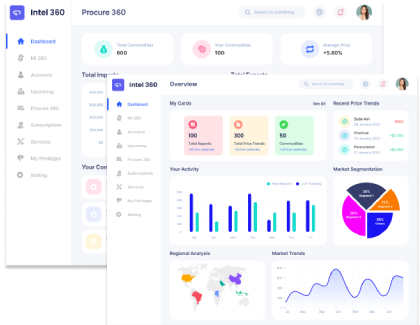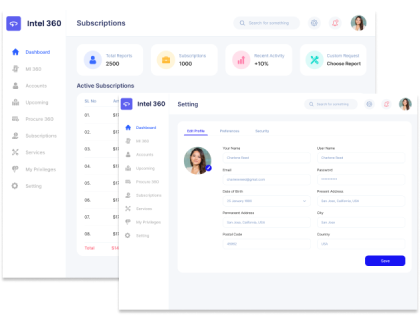Pfizer Inc. has recently announced that the United States Food and Drug Administration (FDA) has approved VELSIPITY™ (etrasimod), an oral, once-daily, selective sphingosine-1-phosphate (S1P) receptor modulator for adults with moderate to severe active ulcerative colitis (UC). The recommended dosage that has been approved by the FDA for VELSIPITY is 2 mg.
Pfizer bought Velisipity by acquiring Arena Pharmaceuticals in 2021 for a whopping USD 6.7 billion. Pfizer believes that the capability of Velisipity to slow down the movement of certain white blood cells in the body can also be utilized for the treatment of other health problems like Crohn's disease, hair loss (alopecia areata), and skin conditions like eczema. Pfizer has also targeted to make an extra USD 25 billion in revenue by 2030 through these new medicines they acquired through small buyouts and licensing, expected to save them against the revenue declines from COVID-19 along with loss of patent protection for older drugs.
Ulcerative colitis is an inflammatory bowel disease (IBD) due to which the inner lining of the large intestine and rectum becomes inflamed. Ulcerative colitis causes symptoms such as diarrhea, abdominal pain, and blood in the stool. Some other common types of IBD include Crohn’s disease and microscopic colitis. IBD can happen to anyone but the most common age group that suffers from it is between the ages of 15 and 30. Ulcerative colitis is a common and major concern in the United States as several research suggest that nearly 600,000 to 900,000 people suffer from ulcerative colitis in the region. The issue is not only the rising prevalence of ulcerative colitis but the fact that it may also show a high incidence of associated autoimmune diseases, including hypothyroidism, primary sclerosing cholangitis, vitiligo, and alopecia areata.
“Because of the unpredictable nature of UC, people living with the disease can cycle through several different treatments over time. Patients may also be apprehensive about using injectable therapies, like biologics,” said Dr. Michael Chiorean, Co-Director of the IBD Center at Swedish Medical Center and an investigator in the ELEVATE Registrational Program. “It’s important to have new, effective options like VELSIPITY for those patients who may require an advanced treatment option and prefer the convenience of a once-daily pill. VELSIPITY is a proven advanced treatment with a favorable benefit-risk profile.”
The FDA approval for VELSIPITY™ (etrasimod) was backed by the results of the ELEVATE UC Phase 3 registrational program (ELEVATE UC 52 and ELEVATE UC 12) that assessed the safety and efficacy of VELSIPITY 2 mg once daily on clinical remission in patients with ulcerative colitis patients who have failed or cannot tolerate conventional, biologic, or JAK inhibitor therapy.
In ELEVATE UC 52, clinical remission (reduction of symptoms) was recorded 27% for patients who were receiving VELSIPITY in comparison to 7% for patients receiving a placebo (an inactive substance) at week 12 (20% differential, P<.001) and was 32% compared to 7.0% at week 52 (26% differential, P=<.001). In ELEVATE UC 12, reduced symptoms were achieved among 26% of patients receiving VELSIPITY compared to 15% of patients receiving placebo (11.0% differential, P=<.05). All the secondary clinical goals of this trial were met at week 12, including endoscopic improvement and mucosal healing. The safety of VELSIPITY was consistent with previous studies, where one of the most common side effects patients experienced were headache, elevated liver tests, and dizziness with an incidence ≥ 5 percent.
About two-thirds of patients in the ELEVATE UC Phase 3 registrational program were using the treatment for the first time with no experience with similar medicines earlier. The fact that the study included specific patients, patients suffering from isolated proctitis made these studies unique. The studies were also able to achieve all the primary and secondary goals, with a proven efficacy with no severe and unexpected side effects.
“UC can affect patients differently and many people living with this disease struggle with ongoing symptoms,” said Michael Osso, President and CEO of the Crohn’s & Colitis Foundation. “The introduction of a new treatment for UC could increase options for patients, and we look forward to seeing the impact of VELSIPITY for patients across the U.S.”
Velsipity is in great competition with Bristol Myers Squibb’s Zeposia, which scored its own UC approval from the FDA in 2021. Pfizer has claimed Velsipity as a potential best-in-class option with an attractive clinical profile such as great performance resulting in great efficacy in comparison with Zeposia in separate clinical trials making healthcare professionals excited to start prescribing it to their patients. However, separate trials hold less reliability in comparison to head-to-head trials.
























Share